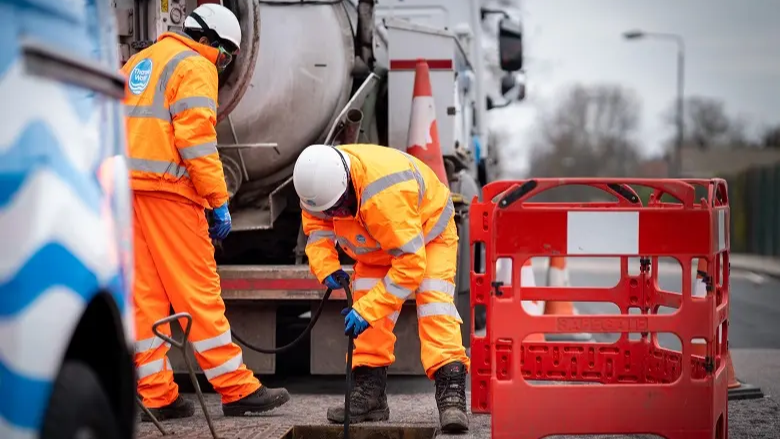Thames Water has celebrated 10 years of its pollution response desk, which helps to protect rivers and streams, as the company finalises its plans for live sewage discharge notifications.
In October 2012 the company set up its 24/7 pollution desk, the first of its kind in the water industry.
The desk receives reports of pollutions from customers and internal employees and sends Thames Water crews to investigate. The rapid response teams will arrive at the scene of a suspected pollution within two hours, often within 60 minutes.
The pollutions desk ensures the right resources attend the site of a reported pollution, appropriate risk assessments are carried out and environmental evidence gathered and interpreted, and reports are made to the relevant regulators.
During the last decade the desk has focussed on improving the company’s self-reporting performance and ensuring consistency in its pollution handling process. Since it was established, Thames Water has worked closely with colleagues across the industry to share best practice.
In the past year almost 2000 potential pollution incidents have been tracked and the response co-ordinated from the pollution desk team. This also includes reviewing thousands of photos and environmental readings to ensure Thames Water provides the right response.
The 10-year milestone comes as Thames Water enters the final stretch to meet its commitment to provide live sewage discharge notifications for all of its 468 permitted sites by the end of 2022.
Part of Thames Water’s River Health action plan and focus on transparency, the company will provide live sewage discharge notifications in as close to real-time as possible. From January 2023 the data will be publicly available on the Thames Water website and the pollution desk will support the business in responding to customer contacts about these notifications.
Thames Water was the first water company to make such a commitment for inland waters and has successfully piloted an open data platform in an industry-leading trial of real-time alerts of sewage discharges from six of its sites around Oxford in 2022.
Richard Aylard, Thames Water sustainability director said:
“Our aim will always be to try and do the right thing for our rivers and for the communities who love and value them. The role of the dedicated team on the pollution desk has been incredibly important in our work to protect precious rivers and streams.
“This is a milestone to celebrate and we’re grateful to everyone who has been in contact with us to report a possible pollution. As well as making it as easy as possible for people to report a pollution, the team has worked hard and built its expertise and efficient systems to help us be transparent, investigate reports quickly and take effective action to protect the environment.”
The pollution desk is manned on a 24 hour rota system by six employees who have a combined experience of 114 years working at the company.
In 2021 Thames Water introduced fast-track pollution reporting for customers as part of its commitment to keeping rivers clean and healthy. The company made changes to its telephone and online channels to help reduce the amount of time it takes to investigate pollution incidents when they happen. The company also has a dedicated ‘Report a pollution’ button on the homepage of its website.
Reporting pollutions
A pollution could be caused by an overflowing or blocked drain, or from a burst water pipe that washes a substance into a watercourse. All these types of occurrences can potentially pose serious short and long-term impacts to the environment.
Thames Water crews carry equipment in their vans, such as sandbags and aeration units so they can take immediate action and can call on specialist resources if needed. But reaction time is always the most important factor in avoiding or reducing damage to the environment.
Thames Water reports all known incidents to the Environment Agency, including those which involve:
Sewage solids
Toilet debris such as toilet paper, condoms and sanitary products
Soap suds or a milky-looking discharge
Grey coloured water
Noticeable sewage smells



